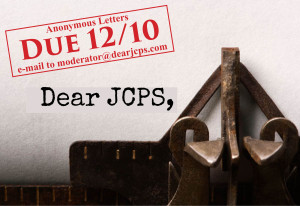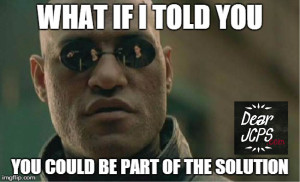Reprinted with permission from student. This letter is part of the @PrichardCom Student Voice Team Series.
I live in parallel universes – the universe of special education and the universe of not-so-special education. I have a foot in each. Every day I am split in two.
In one universe, I am expected to conform to the mostly unspoken expectations and assumptions about students with special needs: that we are different from other human beings (and a little less human), that getting a minimal educational experience is good enough for us, that being taken to a pep rally means we have been “included” and that “dis”-abilities that can be seen are more real than those that cannot.
In the other universe, I must conform to the rules of what is a strange society to me – the culture of “regular” education – where children are segregated from adults, grouped into categories and assumed to be incompetent. In the world of regular education, if I need to get up and move around, I have to ask permission. If I need extra time to finish a test, I miss out on what the “regular” class is doing. If the teacher asks the students to choose a group to work on a project, I am rarely chosen.
In both universes, people don’t always say what they mean, but I am still expected to understand what they have said. Speaking the truth is okay, as long as it’s not too true. If I don’t look someone in the eye or shake their hand, I am seen as being rude and if I accidentally bump into someone, I had better apologize.
My voice is mostly drowned out by the voices of people who do not really see me, who do not really know me and who do not usually seek to hear my thoughts, ideas or dreams. I often feel like a stranger in a strange land.
I am not alone.
According to the 2015 Annual Report to Congress on the Implementation of the Individuals with Disabilities Act, 5.8 million school age students in the public school system today – 8.5 percent of all students – have individual education plans like I do. According to the U.S. Department of Education, another 4.4 million students have 504 plans, which theoretically are designed to give them access to the same education as everyone else.
In Kentucky, our state report card shows 87,000 students, or 13.3 percent, are mired in the special education system.
Out of all these students, the overwhelming majority, almost 70 percent, have disabilities that are not obvious to the naked eye, like autism, emotional disturbance, learning disabilities, or “other health impairments,” including ADHD.
For each of these students and their families, life is a constant battle to be understood.
Just about every day at school I witness an exchange between a teacher and an autistic student where I know I can help, where I could serve as a translator of sorts. But I am told that I may not, that I must keep my opinions to myself, that I am not qualified.
Who better to understand the language of a student with autism than another student with autism? I speak both languages. It took me years to learn to speak, to read text and even to read faces. Because of all the therapies I had early in my life and my other label, “gifted,” I communicate pretty well – most of the time.
The teachers mean well, but they often don’t seem to understand how to interact with students who have less obvious disabilities. And not all teachers or staff are trained. When it doesn’t go well, the student gets blamed.
Dr. Harold Kleinert of the Human Development Institute at the University of Kentucky is piloting a program to train peers to support students with disabilities so they can spend more of their time in “regular” classrooms. His project, based on the research of Dr. Erik Carter of Vanderbilt University, shows that peer training is good for everybody – including the students without disabilities.
In Kentucky, there is no specific certification required to teach students with autism or who are “twice exceptional.” Even with training and certification for learning disorders, there doesn’t seem to be a lot of understanding that students with ADHD or learning disorders are not merely lazy and won’t necessarily grow out of their “disorders.” Autistic people do have feelings, and of course, we want friends. When someone cannot be understood, it doesn’t mean they do not have something to say. It might just mean that we don’t speak the same language.
I am told that the most important thing I can do to ensure my future is to advocate for myself. That is why I want to be heard – on behalf of all of the people I know who cannot.
Written by a sophomore at a JCPS High School. This column was written with support from his sister, a freshman.
This letter was published in the Courier-Journal as part of the Prichard Committee’s Student Voice Team op-ed series.



